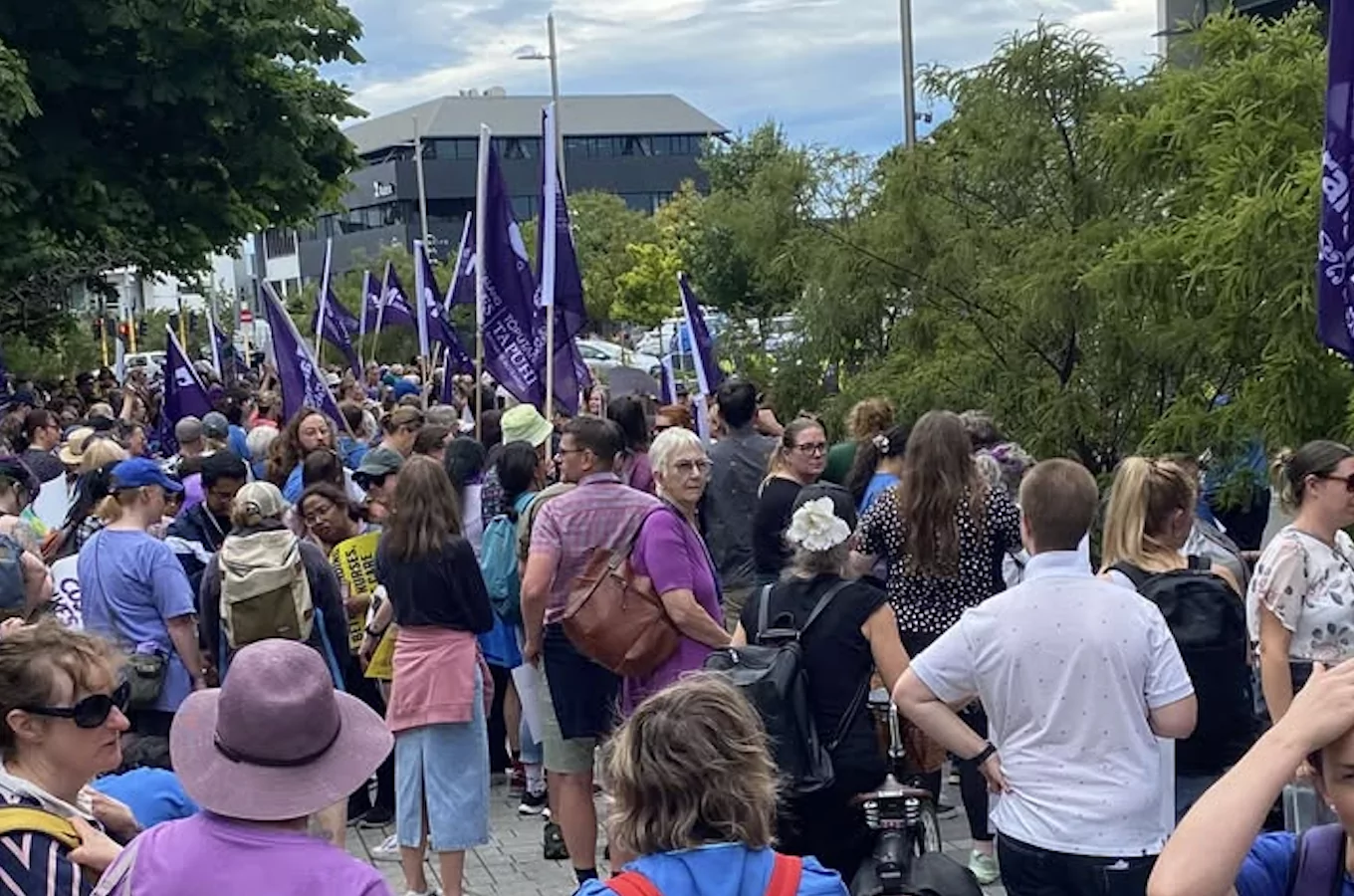Escaped youth tracked by Eagle helicopter, found hiding in New Brighton
The young person who escaped from a youth justice facility in Rolleston has been located...

More than 36,000 nurses, midwives, health care assistants and support workers employed by Health New Zealand will walk off the job in a 24-hour nationwide strike.
The New Zealand Nurses Organisation said the strike will begin at 9am on Wednesday 30 July and continue until 9am on Thursday 31 July, following a vote by members in response to what they describe as an unacceptable offer from Te Whatu Ora.
NZNO Chief Executive Paul Goulter said the latest offer not only failed to address critical safe staffing concerns but was also financially worse than one tabled in May.
“This latest offer from Te Whatu Ora fails to address concerns about safe staffing despite them being raised continually throughout the collective agreement bargaining process,” Goulter said.
“Patients are at risk because of short staffing. Nurses, midwives and health care assistants are stretched too thin and can’t give patients the care they need. This is heartbreaking for our exhausted members who became health care workers because they want to help people.”
Data obtained by the union under the Official Information Act showed that between January and November last year, half of all day shifts across hospital wards in 16 health districts were understaffed.
Goulter also said the new offer included a wage increase that fell short of rising living costs and would leave many staff financially worse off.
“To add insult to injury, members have again been offered a wage increase that doesn’t meet cost of living increases and will see them and their whānau go backwards financially,” he said.
He pointed to the growing number of New Zealand nurses heading overseas.
“There were 30,000 New Zealanders who moved to Australia in the past year. We know some of them are burnt out nurses moving for better conditions and wages.”
Goulter said urgent action was needed to retain and support the workforce.
“Te Whatu Ora needs to do more to retain our nursing workforce, employ graduate nurses and ensure patients get the care they need. This is about the health and wellbeing of real people and their whānau, not the need to meet some arbitrary budget set by the Government.”
He said the situation reflected a broader failure by the Government to manage the health system.
“It looks like this Government has lost control of health,” Goulter said.
The strike will involve a complete withdrawal of labour at every facility where Te Whatu Ora provides care. However, life-preserving services will continue during the strike period.
Health Minister Simeon Brown said “It is incredibly disappointing to hear the New Zealand Nurses Organisation (NZNO) Union has chosen to strike later this month. This will not solve the pressures in our health system; it will only cause harm to patients.
“Thousands of New Zealanders will face disruption as a result of this action. Across the country, the strike is expected to cancel or postpone around 1,500 elective surgeries and arranged treatments, such as hip, knee, and cataract operations.
“It will delay approximately 2,800 first specialist assessments and disrupt radiology procedures, including MRI, CT, and ultrasound scans. Even procedures booked before and after the strike may also face delays, with impacts expected to last well beyond the strike itself.
“We value our nurses and the care they provide to patients, and we have invested significantly in our nursing workforce as a Government.
“The average salary of a registered nurse is more than $125,000 a year, inclusive of overtime and allowances. This is similar to salaries paid to nurses overseas, such as in New South Wales.
“Since 2011, pay for NZNO Union nurses has increased by almost 74 percent – well ahead of wage growth across the wider economy, which has increased by 35 percent according to the Labour Cost Index over the same period.
“Nurses also receive a wide range of additional benefits, including extra pay for nights, weekends, and on-call work; additional leave for long shifts, long service, and sick leave; professional development payments of up to $6,000 a year for some roles; and five weeks’ annual leave after five years of service.
“Our Government is also investing significantly in our nursing workforce in Budget 2025. This includes supporting 400 nurses each year to start their careers in primary care, with payments of $15,000 to clinics in urban areas for each graduate nurse they employ, and $20,000 in rural areas. It also includes funding to train 120 Nurse Practitioners each year in primary care and funding to upskill 60 nurses each year in primary care to become nurse prescribers.
“This strike is a choice by the NZNO Union, which is putting politics ahead of patients. The strike will not reduce waitlists or improve patient care. It will only worsen delays for New Zealanders who are already waiting too long for treatment.
“Health New Zealand remains at the table, ready to negotiate in good faith.
“The offer on the table will see a new graduate nurse on $75,773 gain a total pay increase of $8,337 by the end of June 2026, inclusive of step progression. Walking off the job does not solve anything; it simply harms the very people who need care most. Our Government remains focused on reducing wait times and delivering timely, quality healthcare. We recognise that nurses are essential to this work, and we thank those who will continue to work hard for Kiwis needing care. There is still time to step back from this strike and do what is right for patients.”


